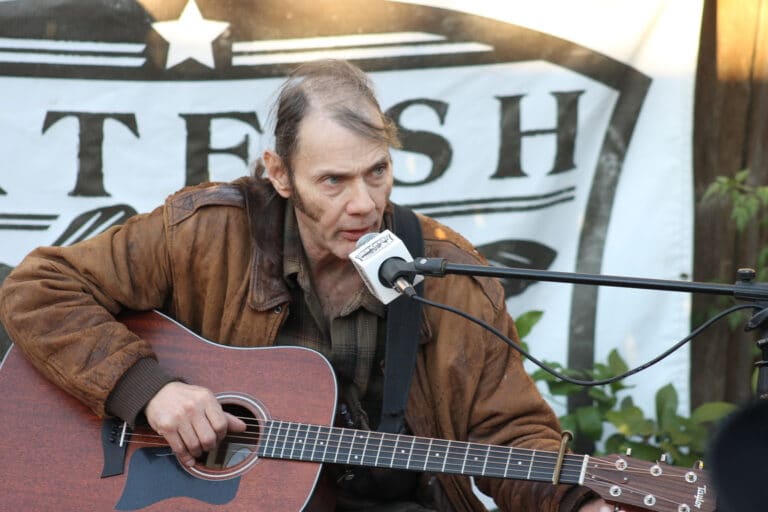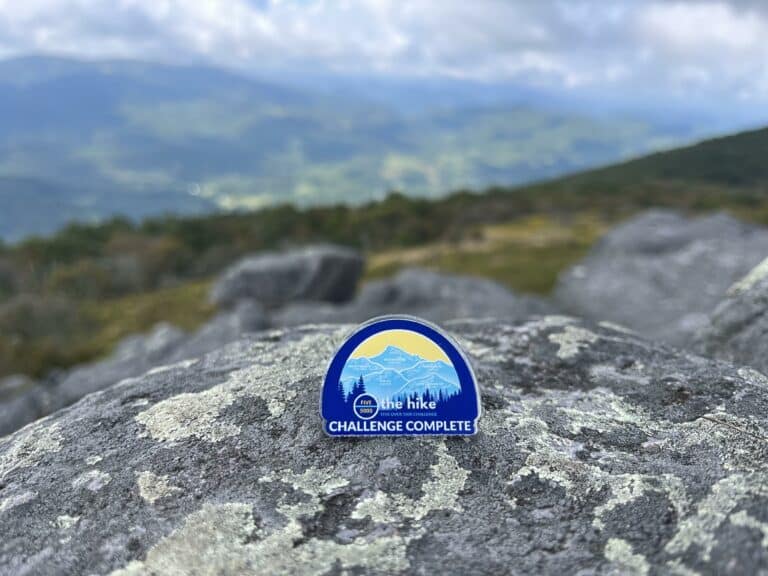Between the paper cups, food scraps, and swag bags full of useless crap, races don’t tread so lightly on the planet. But Keith Peters, author of The Road Race Management Guide to Greener Running Events, is starting to change that. Through his company Eco-Logistics, Peters helps races make real changes toward reducing impact and earning the reward of green certification from the Council for Responsible Sport.
![Cups on Road[6]_color_FIX copy](https://www.blueridgeoutdoors.com/BRO_DEV/wp-content/uploads/2010/06/Cups-on-Road6_color_FIX-copy-200x300.jpg) How hard is it to green the massive production of a race?
How hard is it to green the massive production of a race?
Hosting any large-scale race creates impact. Obviously, the easiest way to have a green event is not have the event at all. I don’t encourage people to cancel races, but thinking about it from that perspective gets you thinking about the equipment and materials that you use—the way you feed and hydrate people.
What are some of the simplest, most effective steps you help races take?
A great easy first step is going to 100-percent online registration. Recycling and composting are also easy. Compost the food waste from the abundance of oranges and bananas served at races. Take leftovers to homeless shelter kitchens. And eliminate plastic altogether.
Do you notice a lot of greenwashing on the race scene?
The certification process helps prevent it. Earning green certification is a detailed process that can take a number of years. It’s systematic and very objective with very high standards. A member from the Council will attend the race to evaluate, so there is third-party credibility. It’s much more detailed than just claiming you’re going green.
Certified Green Races in the Region
Nationwide, only nine races are currently green certified by the Council for Responsible Sport. Races must develop a written plan for improvement in five categories—waste, climate, materials and equipment, community and outreach, and health promotion—and earn credits by proving it with documentation after the race.
“We make the certification process rigorous, so it really calls out the races that are taking sustainability seriously,” says Kirstin Gunderson, certification director for the Council. “We don’t want to be a mass-market tool; we want to be a distinguishing factor.”
TWO RACES IN THE REGION HAVE MET THE CHALLENGE
> Baltimore Marathon/Running Festival:
Organizers donated all leftover food to the Maryland Food Bank, composted paper cups, and started recycling programs for utensils, heat sheets, and even running shoes.
October 16.
> Marine Corps Marathon:
The marathon’s 20,000 runners generate a lot of trash, but the race earned certification for reducing its waste. By composting their food waste and using compostable utensils at the finish-line festival, they reduced the amount of trash sent to landfills by 17,000 pounds.
October 31.
FIRE ON THE MOUNTAIN
Now in its 15th year, the Blue Ridge Burn 10K and 5K is moving to Nelson County near Devils Backbone Brewery this October 9. This race benefits the Southern Environmental Law Center, who not only defend our mountains, but are also leading efforts to fight offshore oil drilling along the coast. It’s part of a two-day music and wellness festival with mountain bike races, guided hikes, and top regional performers.
BIGGER IS BETTER
BRO’s online calendar is the largest and most comprehensive outdoor calendar in the country. Find hundreds of hiking, running, biking, paddling, and climbing events in your backyard this weekend HERE.







